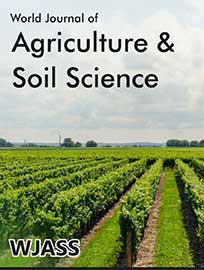 Mini Review
Mini Review
Going Back to the Well: Women, Agency, and Climate Adaptation
Sophia Huyer1* and Tatiana Gumucio2
1CGIAR Research Program on Climate Change, Agriculture and Food Security (CCAFS), Brighton, Canada and International Livestock Research Institute (ILRI), Kenya
2International Research Institute for Climate and Society (IRI), Columbia University, United States
Sophia Huyer, CGIAR Research Program on Climate Change, Agriculture and Food Security (CCAFS), PO Box 30709, Nairobi 00100, Kenya.
Received Date: July 11, 2020; Published Date: July 20, 2020
Abstract
Rising temperatures and more extreme weather associated with climate change are expected to exacerbate existing social and gender inequalities across the globe. Climate change has differential effects on women and men: they are exposed to different climate shocks and experience different impacts related to gender differences in roles, rights, and opportunities. Women’s knowledge, networks, and assets are a significant aspect of resilience, but little attention is given to enabling their capacity as active agents. Instead the focus is on women as vulnerable victims of climate change. Evidence is emerging that adaptation and mitigation approaches in climate-resilient agriculture can and must reduce women’s and men’s vulnerabilities, promote their capacities for resilience, support women to exercise their agency, and, consequently, increase gender equality. Not only do we need to implement climate approaches that benefit women, we need to increase women’s resilience if we are going to effectively address and mitigate climate impacts. If we don’t, we will be on track to miss the 2 degree target – and at same time gender inequality will increase worldwide.
A recent review of literature and regional case studies with researchers from four regions identified the critical dimensions of gender in/ equality in climate-resilient agriculture. They are: (1) participation in decision-making at different levels, (2) work burden, (3) access to and use of productive resources such as agroclimatic information, technology, livelihood incomes, and credit, and (4) collective action. Models for action are presented that show how gender-responsive approaches can promote equality while increasing resilience for all.
Keywords: Gender; Climate; Women; Agency; Equality; Equity; Technology; Collective; Decision-making; Workload
-
Sophia Huyer and Tatiana Gumucio. Going Back to The Well: Women, Agency, and Climate Adaptation. World J Agri & Soil Sci. 5(3): 2020. WJASS.MS.ID.000611.
-

This work is licensed under a Creative Commons Attribution-NonCommercial 4.0 International License.






